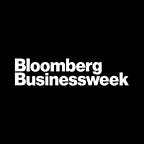Why Are Economists So Bad at Forecasting Recessions?
Professional forecasters feel safer in a crowd. There’s not much incentive to stick one’s neck out.
By Simon Kennedy and Peter Coy
In 1966, four years before securing the Nobel Prize for economics, Paul Samuelson quipped that declines in U.S. stock prices had correctly predicted nine of the last five American recessions. His profession would kill for such accuracy.
With recession talk returning to haunt financial markets and the corridors of central banks, a review of the past suggests that those who are paid to call turning points in economic growth have a dismal record. Unlike the stock market, they’re more likely to miss recessions than to predict ones that never occur. The lowlight, of course, was the widespread failure to forecast America’s Great Recession, which began in December 2007 — nine months before Lehman Brothers filed for bankruptcy.
In February, Andrew Brigden, chief economist at London-based Fathom Consulting, worked out that of 469 downturns since 1988, the International Monetary Fund had predicted only four by the spring of the preceding year. By the spring of the year in which the downturn occurred, the IMF was projecting 111 slumps, fewer than a quarter of those that actually happened. In a…
